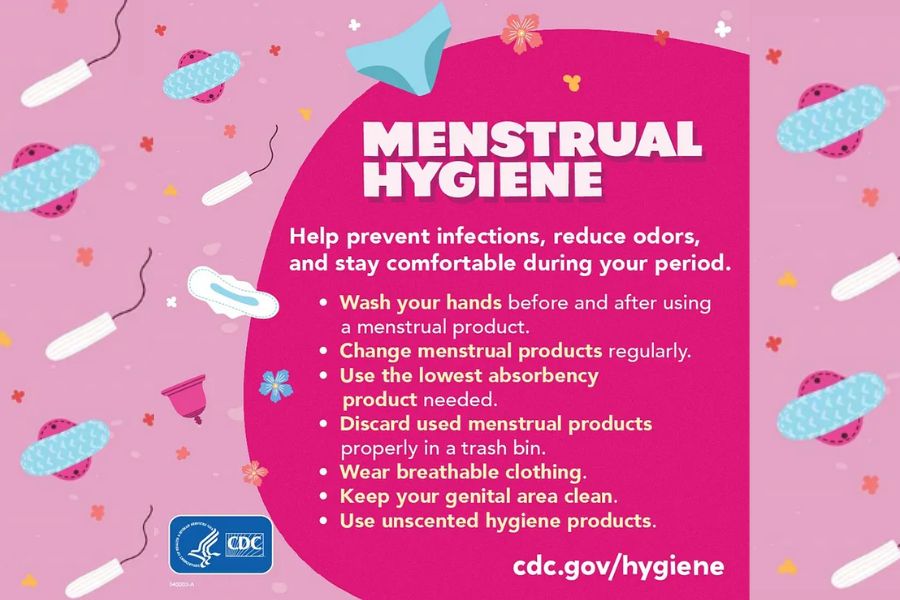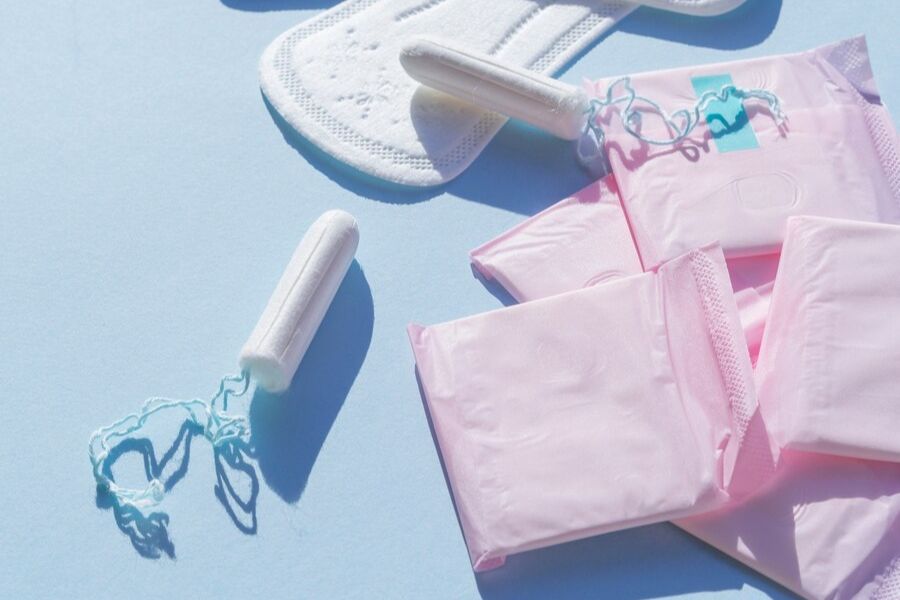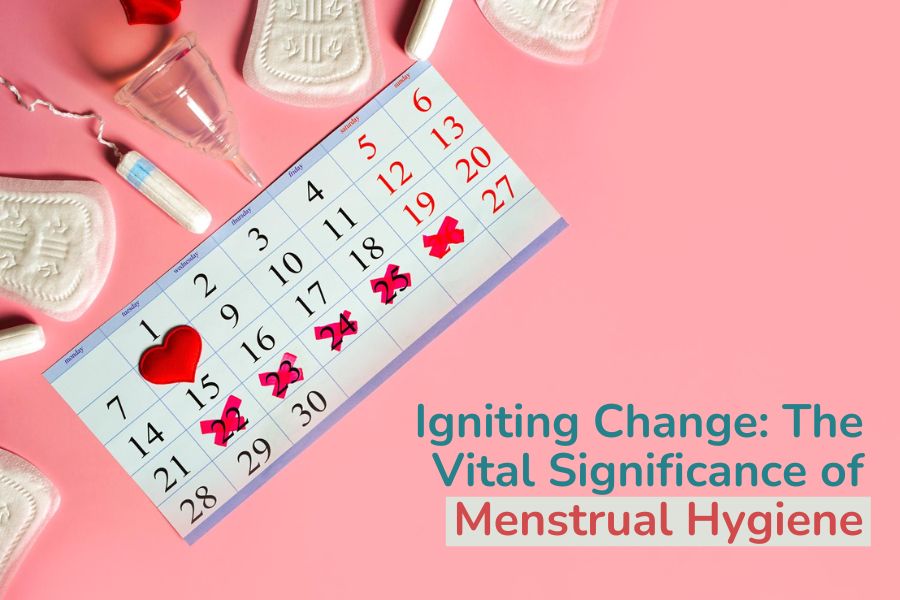- 05th Aug 2024
- srisriholistichospitals.com
- Comment: 0
- blog
On 28 May each year, the global community commemorates World Menstrual Hygiene Day, an occasion aimed at motivating women to prioritise hygiene during their menstrual periods to safeguard their well-being. The concept was introduced by the NGO WASH United, headquartered in Germany, in 2013 and was first officially observed in 2014.
This day serves to create understanding around the significance of proper menstrual hygiene and to dismantle the prevailing societal stigmas linked to menstruation. The selection of 28 May for Menstrual Hygiene Day is symbolic as it mirrors the average duration of a menstrual cycle.

Menstrual Hygiene –Impact on girls’ & women’s Health:
During menstruation, the risk of infection is believed to be elevated, including sexually transmitted infections, due to the blood flow providing a route for bacteria to enter the uterus. Menstrual blood helps neutralise the acidic environment of the vagina, providing natural protection against infections such as bacterial vaginosis.
It can aid in the prevention of toxic shock syndrome (TSS) in girls and women. Women and girls who fail to change their tampons frequently are at risk of being infected with Staphylococcus aureus. In some instances, these bacteria can result in TSS, a condition triggered by tampon usage, that can result in shock, kidney failure, or death.
It aids in the prevention of skin irritations. Infrequent changing of damp pads can lead to skin irritation and potential infection if the skin is compromised.
It aids in decreasing the chances of developing cervical cancer. India is responsible for 27% of global cervical cancer fatalities, as reported by the World Health Organization. Researchers investigating the disease in India think that insufficient menstrual hygiene is one of the factors contributing to the almost double global average incidence rate in the country.

The amateur remedies increase the possibility of vaginal infections that weaken the natural immune system of the reproductive tract. A diminished immune response can weaken the body’s ability to combat the sexually transmitted human papillomavirus, which is the main microbial trigger of cervical cancers.
Gaining knowledge on managing menstrual hygiene helps to maintain cleanliness. Understanding which product or material to use, how frequently to replace it, and having access to WASH facilities supports girls and women in maintaining proper hygiene during menstruation.
Familiarity with the functionality of sanitary pads, reusable pads, tampons, menstrual cups, or other feminine hygiene products enables girls to connect with their bodies in novel and significant ways.
Menstrual Hygiene — Impact on Girls’ Education
A connection exists between menstruation and the dropout rates of girls in the upper grades of primary and secondary education.
When girls start menstruating, at least one out of every five of them will stop attending school. Individuals who persist often end up missing an average of five school days monthly because of insufficient menstrual protection.
Having access to menstrual hygiene products allows girls to stay on par with their male counterparts. A shortage of up-to-date sanitation products frequently results in decreased attendance, academic failure, and/or quitting school. Girls fall behind in education compared to boys when they are absent from school, increasing their susceptibility both in and out of the educational environment.
Maintaining good menstrual hygiene enables girls to remain in school for a longer period of time.
Menstrual Hygiene — Impact on female teachers
Female teachers also face challenges due to their monthly menstrual cycle. They either excuse themselves due to sickness or leave quickly after class, leaving little time to focus on children requiring extra attention.
The school environment is not supportive of different genders and lacks proper menstrual protection and sanitary facilities for female teachers and girls, leading to a breach of their right to privacy and a violation of their human rights.
Consequently, girls and women are disadvantaged and do not have equal opportunities available to them.
Menstrual Hygiene — Impact on National Economy
There is also compelling evidence that ignoring excellent menstrual hygiene harms not only women and girls, but also schools, businesses, and economies indirectly.
Good menstrual hygiene helps to economically empower not only the lady, but also her family, community, and nation. It keeps women employed, which helps to drive economic progress.
Social Benefits of Knowing about Good Menstrual Hygiene:
It helps to disprove myths and cultural superstitions. Teaching girls and women about feminine hygiene and biology helps to debunk myths and cultural superstitions. Women who are equipped with correct hygiene information and sufficient sanitary products feel more assured and comfortable in their own skin.
Dispelling false beliefs and stigmas can contribute to the safety of girls and women. It is detrimental to make menstruating women and girls stay confined in sheds for days. In 2010, a few women who were kept in sheds disclosed incidents of rape, and some lost their lives due to snakebites, exposure to cold, and excessive bleeding.
It aids women in realising they are not contaminated. In various traditional religious beliefs, menstruating women are seen as impure and are not allowed to participate in religious rituals, touch idols, pray, visit places of worship, cook, serve food, or touch drinking water.
Comprehending menstruation helps women realise they are not dirty. While some old religions view menstruation as unclean in a ritualistic sense, proper hygiene can be easily achieved with the availability of sanitation facilities and menstrual hygiene products.
Accurate knowledge on menstrual hygiene helps boys and men understand period blood better, filling in any misinformation they may have.
Menstrual Hygiene- Impact on Personal Development:
Proper menstrual hygiene is essential for the empowerment and overall health of women and girls around the world. It is crucial to ensure that women and girls are in an environment that acknowledges and encourages their ability to manage their menstrual cycles with respect.
Girls can make an informed choice on the menstrual hygiene options that suit them best by educating themselves on the different alternatives.
Providing girls with knowledge about menstruation enhances their confidence, academic performance, and income. Understanding menstruation and the significance of menstrual hygiene enables girls to properly care for their bodies.
Strengthening confidence and negotiation skills, menstrual health and hygiene:
Girls’ awareness of their monthly menstrual cycle fosters a fresh and intense commitment to caring for their bodies. It gives them the ability to choose for themselves. It gives girls and women the confidence to live boldly and without barriers.
When women and girls have reliable and clean products to manage their menstrual flow, they can carry on with their daily activities.
It gets girls ready for their initial menstrual cycle, also referred to as Menarche. Discussing menstrual hygiene prior to menarche is crucial to ensure girls are prepared to manage their first period, which can often be a daunting experience.
It is important to follow these routines to avoid the possibility of infection, odours, and other menstrual health issues. Keeping proper menstrual hygiene can also enhance your comfort and confidence during this period.
Affordable and accessible reusable goods can prevent women and girls from engaging in sexual activities to obtain pads. Roughly 50% of girls in Kenyan slums engage in sexual activities with older men in return for sanitary pads.

Sensitising men and boys about menstruation
Fathers often financially provide for their families, so it is important to inform them about menstruation since they decide if there are enough funds to buy menstrual products. It encourages increased communication and understanding.
Teaching males about menstruation can enhance their understanding of females’ bodies and requirements.
Good Menstrual Hygiene Management (MHM): A Trigger
Proper Menstrual Hygiene Management (MHM) supports the personal, educational, and professional development of women and girls.
There is strong evidence to suggest that neglecting proper menstrual hygiene doesn’t just affect women and girls, but also has negative implications for schools, businesses, and economies.
Encouraging women and girls to embrace their menstrual health with dignity and pride can be achieved by speaking out, challenging societal shame, supporting learning, ensuring affordable access to products, and promoting eco-friendly options.
All of us are responsible for contributing to this revolution, whether by engaging in open discussions, backing community initiatives, advocating for policy reforms, making environmentally-friendly decisions, or uplifting those around us.
Menstrual Hygiene Day 2024 Theme
Together for a #PeriodFriendlyWorld.
United, we have the power to transform a world where menstruation ceases to be a hindrance and becomes a representation of resilience, empowerment, and fairness.
Governments, organisations, and communities need to collaborate in providing clean toilets, handwashing facilities, and waste management systems that cater to the specific requirements of menstruating individuals.
Frequently Asked Questions
World Menstrual Hygiene Day is observed on May 28th each year to motivate women to prioritize hygiene during their menstrual periods and safeguard their well-being. Introduced by the NGO WASH United in 2013, it was first officially celebrated in 2014. The date, May 28, symbolizes the average duration of a menstrual cycle.
Proper menstrual hygiene reduces the risk of infections, including sexually transmitted infections and toxic shock syndrome (TSS), prevents skin irritations, and decreases the chances of developing cervical cancer. It also helps maintain cleanliness and allows women to understand their bodies better through the use of various hygiene products.
Poor menstrual hygiene leads to higher dropout rates and absenteeism among girls in upper primary and secondary education. Access to menstrual hygiene products allows girls to stay in school, keep up with their male counterparts, and reduces the likelihood of academic failure or quitting school.
Female teachers may excuse themselves due to menstrual discomfort, leave quickly after class, and struggle with inadequate menstrual protection and sanitary facilities at school. This lack of support impacts their ability to focus on students needing extra attention and violates their right to privacy.
Ignoring menstrual hygiene not only harms women and girls but also schools, businesses, and economies. Proper menstrual hygiene economically empowers women, keeping them employed and contributing to economic progress.
Understanding menstrual hygiene helps dispel myths and cultural superstitions, enhances safety by reducing harmful practices, and empowers women by challenging stigmas. It also educates boys and men about menstruation, fostering better understanding and support.
Proper menstrual hygiene empowers women and girls, boosts confidence, academic performance, and income. It enables them to make informed choices about their menstrual hygiene options and prepares them for managing their first menstrual cycle (menarche).
Effective MHM supports women's and girls' personal, educational, and professional development. Neglecting menstrual hygiene has negative implications for schools, businesses, and economies. Promoting dignity and pride in menstrual health involves open discussions, community initiatives, policy reforms, and eco-friendly choices.









